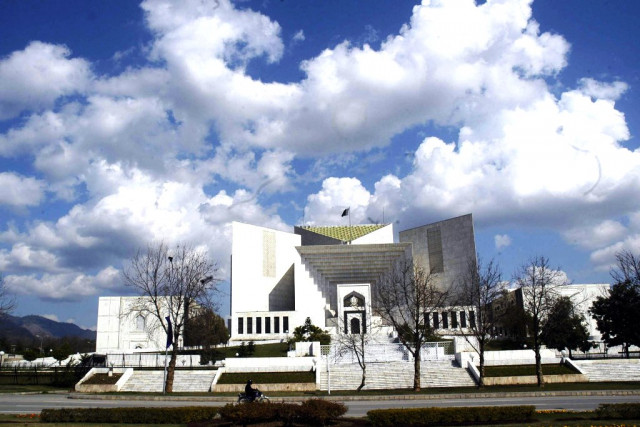Case verdict: Top court rejects CNG price mechanism
Asks OGRA to devise ‘consumer-friendly’ formula; holds watchdog accountable for mess.

The Supreme Court has rejected the Oil and Gas Regulatory Authority’s (Ogra) compressed natural gas (CNG) pricing formula and directed it to devise a new ‘consumer-friendly’ pricing mechanism.
After hearing three identical petitions pertaining to fuel pricing mechanisms for almost two months, the two-member apex court bench comprising Justice Jawwad S Khwaja and Justice Khilji Arif Hussain read out its interim order on Friday. While the bench rejected the existing pricing formula, it directed that current CNG prices will remain in effect until the new mechanism is devised.
The petitioners, Engineer Iqbal Zafar Jhagra, Senator Rukhsana Zuberi and Sannaullah, had among other things, alleged that the CNG prices for consumers were not being determined legally and were inflated as such.
In its short order, the court held Ogra directly responsible for inflated CNG prices, maintaining the authority had allowed the federal government and CNG station owners to form a cartel and failed to protect consumers’ rights. It stated that the operational costs of CNG stations were calculated according to a memorandum of understanding (MoU) signed between the All Pakistan CNG Association, CNG Dealers Association, station owners and the federal government on August 25, 2008.

“This MoU purported to fix CNG prices in the whole country for a certain period and was subject to revision by consultative process between the parties on a bi-annual basis… Fixing CNG prices in this manner represents a clear violation of the law,” the judgment continued.
It stated Ogra, which is an autonomous authority and is responsible for regulating CNG prices, was not even a party to the MoU. However, instead of intervening to protect consumers, the authority simply chose to enforce the MoU.
“This constitutes a blatant abandonment of its (Ogra’s) duties and the abdication of its statutory role as the protector of the interests of citizens, who have to bear the unjustifiable prices,” the judgment maintained, adding, “This represents one of those sad episodes in our history where the cartel of suppliers, the government and the regulator came together to exploit the poorest and most helpless among the country’s citizens.”
The court also expressed great regret at the ‘unhelpful’ approach of the country’s executive authority throughout the hearings of the case.
Published in The Express Tribune, December 22nd, 2012.



















COMMENTS
Comments are moderated and generally will be posted if they are on-topic and not abusive.
For more information, please see our Comments FAQ